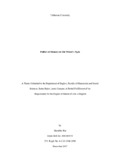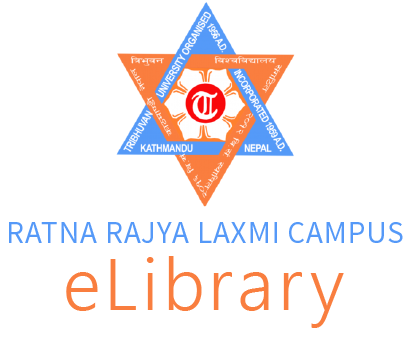Please use this identifier to cite or link to this item:
http://eibrary.ratnarajyalaxmicampus.edu.np:8080/handle/123456789/68Full metadata record
| DC Field | Value | Language |
|---|---|---|
| dc.contributor.advisor | Adhikari, Yadab | |
| dc.contributor.author | Rai, Shambhu | |
| dc.date.accessioned | 2020-12-29T10:19:59Z | - |
| dc.date.available | 2020-12-29T10:19:59Z | - |
| dc.date.submitted | 2017 | |
| dc.identifier.uri | http://202.45.147.228:8080/handle/123456789/68 | - |
| dc.description.abstract | The present research project examines the politics of memory in Elie Wiesel’s Nobel Peace Prize Winning memoir Night in order to argue how Wiesel’s act of remembering his traumatic past documents the realistic picture of the Holocaust history and how he, through his humanistic contemplation to rememorize past, develops his knowledge of humanity as the man’s responsibility and imparts it as a message for the world to come. It further explores the writer’s position as an ethical humanist whose painful memory aims at not lamenting the past but at learning from it so that the future generations will not suffer the same tragedy. While doing it, the researcher will incorporate the theoretical insights of ‘working through’ from the field of Trauma theory and the philosophical ideas of Levinas’ ethical humanism in order to strengthen the major argument to its fullest logic. The research concludes with the findings that the writer’s politics behind remembering his traumatic past in the memoir is to awaken the world for the preservation of humanity. | |
| dc.format.extent | 26 | |
| dc.subject | M.A. English | |
| dc.title | Politics of Memory in Elie Wiesel's Night | |
| dc.type | Thesis | |
| Appears in Collections: | Theses | |
Files in This Item:
| File | Description | Size | Format | |
|---|---|---|---|---|
| 400369_Rai_Shambhu.pdf | 207.61 kB | Adobe PDF |  View/Open |
Items in DSpace are protected by copyright, with all rights reserved, unless otherwise indicated.
